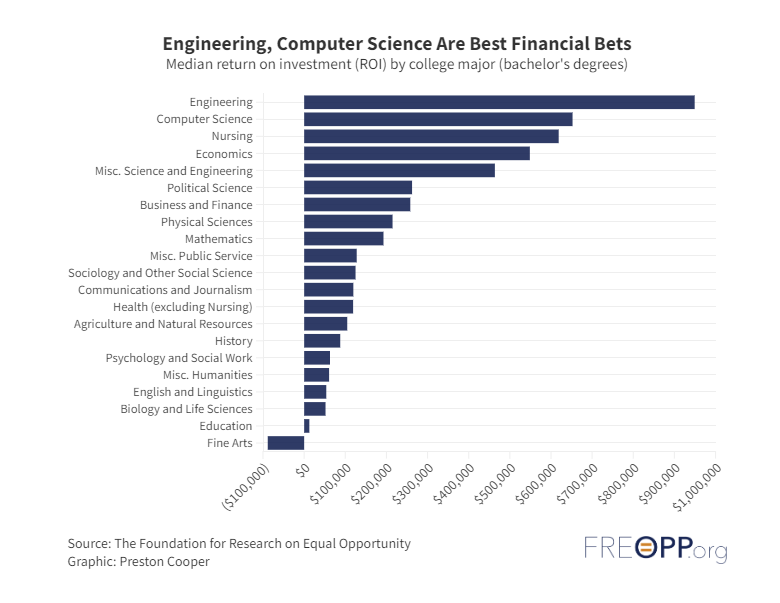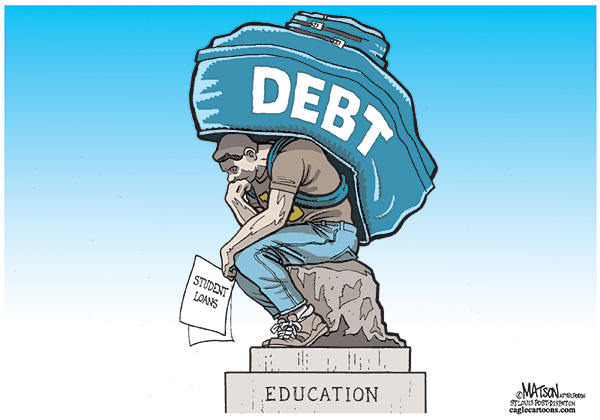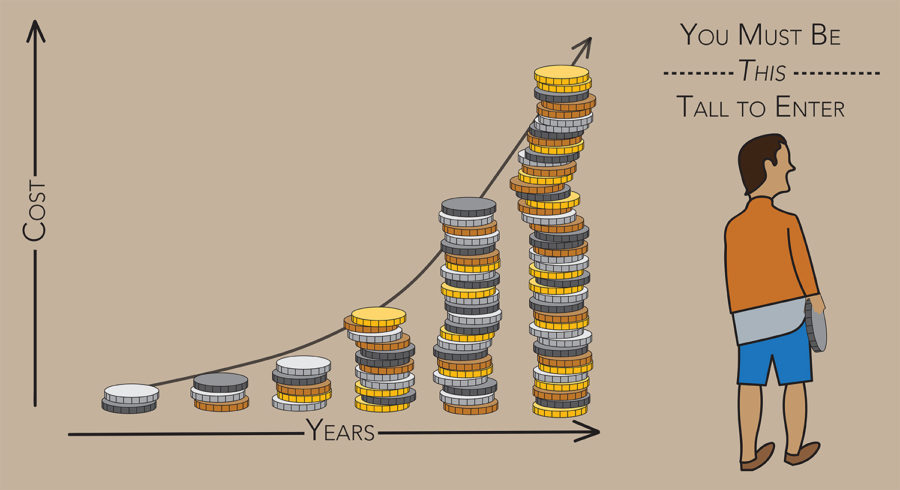
Maximizing Your Future: A Deep Dive into the Financial ROI of College Degrees
In an era marked by soaring tuition costs and a national student debt figure that has climbed into the trillions, the conversation around higher education has fundamentally shifted. Once viewed solely as a bastion of intellectual and personal growth, a college degree is now increasingly scrutinized through the lens of a financial instrument. For prospective students and their families, the question is no longer just “What do I want to study?” but “What is the return on this monumental investment?” This shift in perspective is a cornerstone of modern Investment News, treating education as perhaps the first and most significant portfolio decision a young adult makes.
Viewing a degree as an asset requires a sophisticated analysis that goes beyond a simple comparison of starting salaries. It involves calculating long-term earnings potential against the total cost of attendance, including lost income during years of study. The resulting Return on Investment (ROI) can dramatically shape an individual’s financial trajectory, influencing everything from their ability to purchase a home to their overall Mental Health and well-being. This article provides a comprehensive guide to understanding the ROI of a college degree, breaking down which fields offer the most lucrative returns, exploring the invaluable intangible benefits, and offering actionable Financial Planning advice for making the smartest possible choice for your future.
The Modern Calculus of Higher Education: Viewing Your Degree as an Investment
The decision to pursue higher education has evolved into a complex financial calculation. While the pursuit of knowledge remains a noble goal, the economic realities demand a pragmatic approach. Treating your degree as a financial asset is not cynical; it’s a necessary strategy for navigating a high-stakes environment. This perspective is central to contemporary Personal Finance, where every major expenditure is evaluated for its potential to generate future value.
Defining and Calculating ROI for a College Degree
At its core, the ROI of a college degree can be understood with a straightforward, albeit data-intensive, formula: the net gain in lifetime earnings resulting from the degree, divided by its total cost. The complexity lies in accurately estimating these variables.
- The Cost: This isn’t just tuition and fees. A true calculation includes room and board, books, and, most importantly, the opportunity cost of lost wages for the four or more years spent out of the full-time workforce. Applying smart Budget Tips during these years can significantly lower the overall investment.
- The Return: This is the projected increase in earnings over a 40-year career compared to a high school graduate. Data from sources like the U.S. Bureau of Labor Statistics (BLS) and Georgetown University’s Center on Education and the Workforce provide robust estimates based on field of study, institution type, and demographic factors.
For example, if a degree costs a total of $200,000 (including lost wages) and leads to a lifetime earnings increase of $1,200,000 compared to a non-graduate, the net return is $1,000,000. This represents a 500% return on the initial investment, a figure that would be the envy of any Wall Street investor.
The Widening Gap: Degree Holders vs. Non-Degree Holders
Decades of economic data confirm a significant and growing earnings gap between those with and without a bachelor’s degree. According to the BLS, individuals with a bachelor’s degree earn, on average, 67% more per week than those with only a high school diploma. Over a lifetime, this “degree premium” can amount to over a million dollars. This financial cushion has profound implications for every aspect of life. It’s the difference between struggling with rent and planning a major Home Improvement project, or worrying about daily expenses versus strategically investing for Senior Living. This financial security is a powerful tool for Stress Management, directly contributing to better Health & Wellness outcomes.
Decoding the Data: Which Fields Consistently Deliver the Best Returns?
While a degree, in general, is a positive investment, the financial returns vary dramatically by field of study. Analyzing this data is a critical piece of Career Advice for any prospective student. The highest returns are consistently found in fields that equip graduates with in-demand, quantitative, and technical skills that are difficult to outsource or automate.

The STEM Hegemony: Engineering, Computer Science, and Health Sciences
Science, Technology, Engineering, and Mathematics (STEM) degrees consistently top the charts for ROI. The reason is simple supply and demand. The modern economy is built on technology and data, creating immense demand for a limited supply of qualified professionals.
- Engineering: Fields like Petroleum, Computer, and Electrical Engineering often boast six-figure starting salaries. The 20-year net ROI for an engineering degree can exceed $1.5 million, even after accounting for high tuition costs at top-tier schools.
- Computer Science: With the explosion of AI, data science, and software development, this degree is a gateway to some of the most lucrative careers. The skills learned are directly applicable and highly valued, leading to a rapid return on investment.
- Health Sciences: Degrees in Nursing, Pharmacy, and other health professions offer not only high salaries but also exceptional job security. The financial stability afforded by these careers allows graduates to invest in their well-being, from exploring Holistic Health practices to having the resources for better Nutrition News and fitness.
The Surprising Contenders: Economics, Finance, and Niche Business Degrees
While STEM leads the pack, quantitative business degrees are not far behind. A degree in Finance, Economics, or Actuarial Science provides a direct pathway to high-paying industries like investment banking, consulting, and risk management. These programs teach the very principles of Financial Planning and investment, a form of Self-Improvement that pays dividends both professionally and personally. A graduate with these skills can more effectively manage their own finances, from planning DIY Projects to save money to building a diverse investment portfolio.
The Long Game: The ROI of Liberal Arts and Humanities
It’s a common misconception that liberal arts degrees offer a poor financial return. While they typically have lower starting salaries compared to STEM fields, the story changes over the long term. These degrees cultivate soft skills—critical thinking, communication, adaptability, and complex problem-solving—that are highly valued in management and leadership roles. A philosophy major may not start as a programmer, but their ability to construct logical arguments and communicate clearly could make them an exceptional project manager or executive 20 years down the line. This career trajectory often supports a better Work-Life Balance, allowing individuals to pursue personal interests, from Yoga News to Volunteering, contributing to a more fulfilling life.
The Intangible Returns: How a Degree Shapes Your Life and Well-being
A purely financial analysis of a college degree, while essential, is incomplete. The true ROI extends far beyond a bank account, weaving into the very fabric of a person’s life, health, and social connections. These “intangible” returns are difficult to quantify but are arguably just as valuable as the monetary gains.
Health, Longevity, and Wellness
An overwhelming body of sociological and public health research shows a strong correlation between higher education levels and positive health outcomes. College graduates, on average, live longer, report lower rates of chronic disease, and engage in healthier behaviors. This can be attributed to several factors: better-paying jobs often come with better health insurance; higher health literacy leads to better choices regarding Nutrition News and Fitness Tips; and careers are often less physically demanding and safer. The reduced financial stress alone is a significant contributor to improved Mental Health and better Sleep Health.
Building Social Capital and Professional Networks
The college experience is a powerful engine for building social capital. The friendships, mentorships, and professional connections forged on campus can last a lifetime. This network becomes an invaluable resource for career advancement, business opportunities, and personal support. It can provide a sense of Community Living and open doors that would otherwise remain closed. Whether seeking Career Advice, finding a co-founder for a startup, or getting a recommendation for a new job, the college network is a powerful asset that continually appreciates in value.

Personal Growth and Lifestyle Enrichment
Higher education is fundamentally about expanding one’s horizons. It fosters critical thinking, exposes students to diverse perspectives, and cultivates a lifelong passion for learning. This intellectual foundation enriches life in countless ways. It can spark an interest in Sustainable Living, a deeper appreciation for Cultural Events, or the confidence to tackle complex DIY Projects. A stable, well-paying career also provides the resources to pursue hobbies and passions, whether it’s planning a trip based on the latest Travel News, perfecting Healthy Recipes, or investing in Technology for Home like a smart security system. This holistic development is a core component of Personal Development and contributes to a richer, more engaged life.
Actionable Strategies for Smart Educational Planning
Maximizing your educational investment requires a proactive and strategic approach. It’s not just about what you study, but where you study and how you finance it. Making informed choices at every step can dramatically improve your long-term ROI.
Choosing the Right Institution
The prestige of an institution matters, but often less than its price tag. A degree in computer science from a reputable state university can offer a far better ROI than the same degree from an expensive private college, due to the massive difference in cost. Prospective students should prioritize schools with strong programs in their chosen field, high job-placement rates, and robust alumni networks. Researching in-state public universities first is one of the most effective Budget Tips for higher education.

Minimizing Debt and Maximizing Aid
Student loan debt is the single biggest factor that can erode the ROI of a degree. Every effort should be made to minimize it. This means aggressively pursuing scholarships, grants, and work-study programs. A common pitfall is borrowing the maximum amount offered without a clear plan. Adopting principles of Minimalism and practicing diligent Organization Tips during college can help reduce living expenses and the need for loans. A student who graduates with little to no debt is years ahead in their Financial Planning journey.
The Rise of Alternative Pathways
The traditional four-year degree is no longer the only path to a successful career. For certain fields, alternative pathways can offer a much faster and higher ROI. Trade schools for skilled professions like electricians and plumbers, and intensive tech bootcamps for coding and cybersecurity, can lead to high-paying jobs in a fraction of the time and at a fraction of the cost. Similarly, starting at a community college for two years before transferring to a four-year university is a proven strategy for significantly reducing the overall cost of a bachelor’s degree.
Conclusion: A Balanced Equation for a Prosperous Future
In the final analysis, choosing a college and a major is one of the most critical investment decisions of a lifetime. The data clearly shows that degrees in STEM and quantitative business fields tend to offer the highest and most immediate financial ROI, providing a powerful launchpad for a secure future. However, a purely financial lens is too narrow. The holistic returns of a college education—improved health, expanded social networks, and profound personal growth—are invaluable assets that compound over a lifetime.
The optimal strategy is a balanced one that aligns personal passions with economic realities. By diligently researching fields of study, carefully selecting an affordable institution, and relentlessly minimizing debt, prospective students can set themselves up for a future that is not only financially prosperous but also intellectually and personally fulfilling. This informed, strategic approach to education is the ultimate form of Self-Improvement and the bedrock of a well-lived life.
Archives
- February 2026
- January 2026
- December 2025
- November 2025
- October 2025
- September 2025
- August 2025
- July 2025
- June 2025
- May 2025
- April 2025
- March 2025
- February 2025
- January 2024
- October 2023
- September 2023
- August 2023
- July 2023
- June 2023
- May 2023
- April 2023
- March 2023
- February 2023
- January 2023
- December 2022
- November 2022
- October 2022
- September 2022
- August 2022
- June 2022
- May 2022
- April 2022
- March 2022
- January 2022
- December 2021
- November 2021
- October 2021
- August 2021
- November 2020
- July 2020
- May 2020
- April 2020
- March 2020
- August 2018
- July 2018
- June 2018
- April 2018
- March 2018
Categories
- Aftercare Procedures
- Age Groups
- AI/ML
- Alternative Medicine
- Ambient Computing
- Animal Health
- Animal Husbandry
- Animals
- Anti-Aging
- Architectural Design
- Art And Technology
- Auditory Science
- Augmented Reality
- Automation
- Babies
- Baby
- Beauty & Skincare
- Beauty Industry
- Biohacking
- Biomechanics
- Book Reviews
- Breastfeeding
- Budgeting
- Budgeting Strategies
- Business
- Cardiovascular Health
- Career Advice
- Career Development
- Career Growth
- Cats
- Chess
- Chronobeauty
- Circular Economy
- Civic Technology
- Cleaning Tips
- Cloud Computing
- Cognitive Health
- Cognitive Performance
- Cognitive Science
- Community
- Community Building
- Community Engagement
- Community Living
- Computer Vision
- Consumer Guides
- Consumer Trends
- Container Gardening
- Content Analysis
- Content Non-Technical
- Content Strategy
- Cooking Techniques
- Cosmetic Chemistry
- Cultural Events
- Cycling
- Data Analysis
- Data Engineering
- Data Governance
- Data Science
- Database
- Design Psychology
- Design Trends
- Developer Productivity
- Diet
- Diet
- Diet And Nutrition
- Digital Identity
- Digital Media
- Digital Wellbeing
- DIY
- DIY Projects
- Dogs
- Engineering Culture
- Entertainment News
- Environmental Impact
- Environmental Science
- Equity Compensation
- Ethical AI
- Exercise
- Exercise Science
- Exercise Technique
- Exotic Pets
- Fall Gardening
- Family
- Family Health
- Family Life
- Fashion Business
- Fashion Industry
- Fashion News
- Fashion Tech
- Financial Analysis
- Financial Optimization
- Financial Planning
- Flooring Maintenance
- Food
- Food Psychology
- Food Safety
- Food Science
- Food Tech
- Functional Fitness
- Functional Training
- Future Of Work
- Garden Care
- Garden Maintenance
- Gardening Tips
- Geospatial Data
- Gig Economy
- Greece
- Greek
- Greek Food
- Green Technology
- Gymnastics
- Hardware Engineering
- Health
- Health And Wellness
- Health Informatics
- Health Science
- Health Tech
- Health Technology
- Healthcare
- Healthcare Management
- Healthy Eating
- Healthy Recipes
- Holistic Health
- Holistic Wellness
- Home & Living
- Home Decor
- Home Financing
- Home Health
- Home Improvement
- Home Maintenance
- Home Organization
- Home Styling
- Horticulture
- Household Chemistry
- Identity Management
- Indoor Gardening
- Industrial Design
- Industry Analysis
- Infant Nutrition
- Infrastructure Management
- Ingredient Deep Dive
- Integrative Health
- Integrative Medicine
- Interior Design
- Internet of Things
- Internet of Things (IoT)
- Invalid Request
- Investment Strategies
- Investment Strategy
- IoT
- Kids
- Leadership Development
- Learning Strategies
- Lifestyle
- Lifestyle Brands
- Lifestyle News
- Lifestyle Optimization
- Literary Criticism
- Literature
- Logistics Management
- Machine Learning
- Material Science
- Materials Science
- Meal Planning
- Media Analysis
- Meditation
- Mental Health
- Mental Performance
- Mental Wellness
- Miami
- Miami Food
- Mind And Body
- Minimalism
- Mobile Development
- Neuroscience
- No Applicable Categories
- Nursing
- Nutrition
- Nutrition News
- Open Source
- Operating Systems
- Operational Resilience
- Opinion
- Organization Tips
- Outdoor Living
- Over 40
- Over 50
- Over 60
- Parenting
- Parenting
- Parenting Strategies
- Performance
- Performance Optimization
- Personal Development
- Personal Finance
- Personal Growth
- Personal Productivity
- Pet Care
- Pet Safety
- Philosophy
- Plant Care
- Politics
- Product Formulation
- Productivity
- Productivity Engineering
- Protein
- Psychology
- Psychology of Space
- Quantified Self
- Reading Culture
- Real Estate Investment
- Recipes
- Regulatory Compliance
- Remote Work
- Renovation Planning
- Resource Management
- Respiratory Health
- Responsible Pet Ownership
- Retail Strategy
- Retail Technology
- Robotics
- Science
- Seafood
- Seasonal Gardening
- Security
- Sedentary Health
- Self-Care
- Skincare Science
- Skincare Trends
- Sleep
- Sleep Health
- Smart Home
- Smoothies
- Social Impact
- Soft Skills
- Soil Health
- Spatial Computing
- Spatial Design
- Stress Management
- Supplements
- Sustainability
- Sustainability Science
- Sustainable Engineering
- Sustainable Fashion
- Systems Engineering
- Tax Optimization
- Tax Strategy
- Tech Investment
- Technical Writing
- Testing
- Travel
- Travel News
- Travel Safety
- Travel Tips
- Trend Analysis
- Tropical Plants
- Uncategorized
- Urban Gardening
- Urban Planning
- User Experience
- Veggie
- Vietnam
- Virtual Events
- Volunteering
- Wealth Management
- Wearable Technology
- Web Development
- Wellness
- Wellness Technology
- Winter Gardening
- Work-Life Balance
- Workplace Culture
- Workspace Setup
- World
- Writing
- Writing Skills
- Year In Review
- Yoga
- Yoga News
- Zero Waste




Leave a Reply